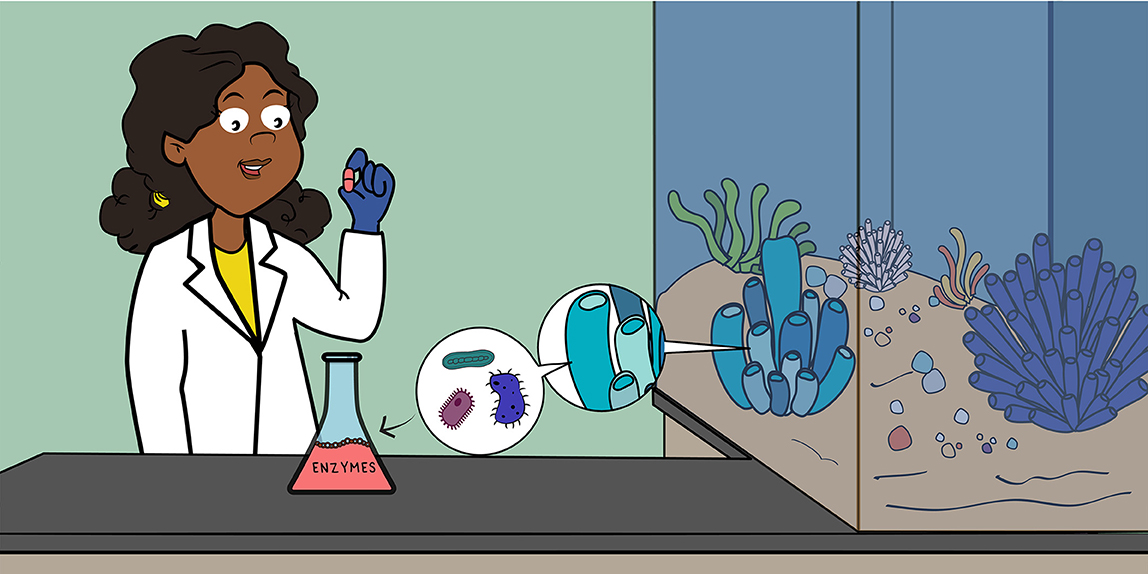In our quest for cleaner and more sustainable energy sources, we find ourselves turning to some unexpected allies from beneath the waves – marine enzymes. These remarkable biological catalysts are rewriting the future of energy production by playing a crucial role in the development of sustainable biofuels.
Biofuels, derived from organic materials like crops, algae and waste, offer a promising alternative to fossil fuels. They are renewable, emit fewer greenhouse gases and can significantly reduce our dependence on non-renewable resources. However, the efficiency of biofuel production has often been hindered by complex and costly conversion processes.
This is where marine enzymes enter the scene by offering innovative solutions that could reshape the biofuel landscape.

The Biofuel Conundrum
Biofuel production typically involves breaking down complex organic materials such as cellulose and lignin, into simpler sugars that can be fermented to produce ethanol or other biofuels. This process, known as biomass deconstruction, has traditionally been energy-intensive and expensive.
The biomass feedstocks often require harsh chemical treatments and high temperatures to be effectively converted into biofuels. These methods come with environmental and economic drawbacks making them less appealing for widespread adoption.
The Marine Enzyme Advantage
Marine enzymes, sourced from a diverse array of marine life forms like fungi, bacteria, and algae, offer a more sustainable and efficient alternative to traditional methods of biomass deconstruction. These enzymes have evolved over millions of years to break down complex organic matter in the challenging marine environment – making them highly effective catalysts.
Here’s how marine enzymes are transforming the biofuel industry:
- Enhanced Efficiency: Marine enzymes, such as cellulases and hemicellulases, can efficiently break down cellulose and other complex organic materials into fermentable sugars at lower temperatures and under milder conditions. This translates to significant energy and cost savings in the biofuel production process.
- Eco-Friendly: Using marine enzymes eliminates or reduces the need for harsh chemicals and high temperatures in biomass deconstruction. This not only reduces environmental impact but also makes biofuel production more sustainable.
- Biomass Diversity: Marine environments offer a rich source of diverse biomass, including algae and seaweed, which can be harnessed for biofuel production. Marine enzymes are well-suited for breaking down these unique feedstocks.
- Biodegradable Byproducts: Marine enzyme-driven processes produce fewer waste byproducts, and these byproducts are often biodegradable, minimizing environmental pollution.
- Scaling Possibilities: Marine enzyme technology can be scaled up for industrial biofuel production, making it a viable solution for large-scale energy needs.
Challenges and Future Prospects
While the potential of marine enzymes in biofuel production is promising – there are still challenges to overcome. Researchers are actively exploring ways to improve enzyme stability, increase their tolerance to harsh conditions and reduce production costs.
Nevertheless, the integration of marine enzymes into the biofuel industry represents a significant step towards a more sustainable and greener future. As research and development in this field continue to advance, we can look forward to a world where sustainable biofuels, driven by marine enzymes, play a pivotal role in meeting our energy needs while preserving our planet.
In harnessing the power of the oceans – we are truly fueling the future.

